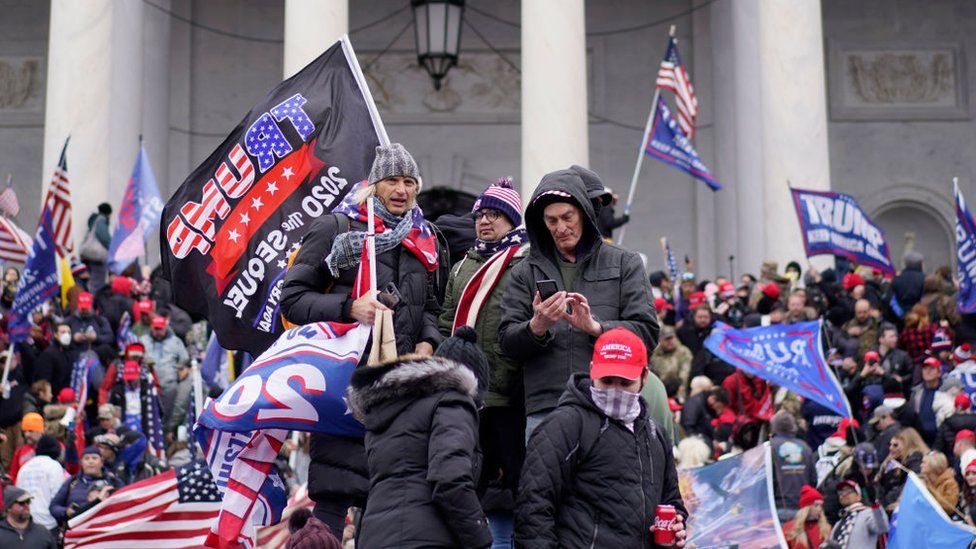Trump impeachment: Senate paves way for speedy trial of ex-president
The second impeachment trial of Donald Trump begins on Tuesday as Senate leaders agreed a rapid timetable.
The former president is charged with "inciting insurrection" in a speech to supporters ahead of the deadly riot at the US Capitol on 6 January.
Democrats say they have "overwhelming" evidence of his guilt while his defence team claim rioters acted independently.
The defence call the trial "absurd and unconstitutional" and its legality of it will be a focus on Tuesday.
Mr Trump is the only US president in history to have been impeached twice and one of only three to have been impeached at all.
If convicted, he could be barred from holding office again. But a two-thirds of the 100-seat senate is required to convict - Democrats hold 50 seats and there is little sign enough Republicans will join them.
In a pre-trial statement released on Monday, Mr Trump's lawyers argued the trial is unconstitutional because Mr Trump has left office and is now a private citizen.
The nine "impeachment managers" - Democrats from the House of Representatives who will lay out the case for prosecution - dispute this, saying he should be accountable for actions as president.
Both sides will have four hours to tackle this constitutional question on Tuesday, with a vote expected at the end of the day on whether to proceed.
How will the trial play out?
Senate leaders agreed a framework for the trial on Monday.
"All parties have agreed to a structure that will ensure a fair and honest Senate impeachment trial of the former president," US Senate Majority Leader Chuck Schumer said.
If Tuesday's constitutional vote passes - and it is expected to - opening arguments will begin on Wednesday afternoon with both sides allowed up to 16 hours each for presentations.
 image copyrightGetty Images
image copyrightGetty ImagesThese arguments are expected to run through until the weekend when senators will get a chance to ask both sides questions.
It is unclear if the impeachment managers will then extend the timetable by requesting witnesses be called or subpoenaed - though Mr Trump has already declined to voluntarily testify.
Lawmakers on both sides are said to favour a quick trial, amid an ongoing effort to have President Joe Biden's coronavirus relief package approved.
With the speedy timetable, it is thought a Senate vote on whether to convict Mr Trump or not could come as early as Monday.
What is the argument for and against impeachment?
Democrats say Mr Trump's repeated refusal to concede last November's presidential election to Joe Biden - as well as the fiery rhetoric he used addressing supporters - encouraged the riot on 6 January where five people died.
They have called for Mr Trump to be disqualified from ever running for office again.
"His incitement of insurrection against the United States government - which disrupted the peaceful transfer of power - is the most grievous constitutional crime ever committed by a president," they said on Monday.
House managers are expected to use Mr Trump's words and footage from the day to show that "the furious crowd" was "primed" for violence.
Mr Trump's legal team argue Mr Trump was simply exercising his First Amendment rights to freedom of speech and have described the trial as "political theatre" and a "brazen political act".
They also argued in their pre-trial brief that FBI documents had shown that the riot was planned days in advance therefore Mr Trump's words cannot have incited it.



No comments